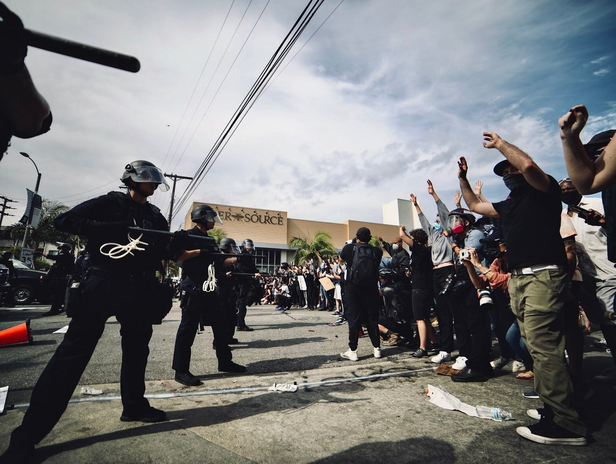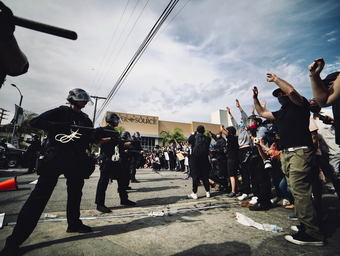“ What is systemic or institutional racism, and does it exist? “
Let’s talk about statistics for a moment. According to the Bureau of Justice Statistics, in 2018, black people made up approximately 37.1% of the prisoners under jurisdiction of state or federal correctional authorities, and only 13.4% of the U.S. population. In contrast, white people made up 28.3% of prisoners and 60.4% of the total population.
” Why are more black people incarcerated than white people? Are they more likely to cause violence or commit crimes because of their skin color? “
The truth is that these statistics are subject to sampling bias. Not all who are convicted of a crime have broken the law, and not all who break the law are convicted of a crime. Black people make up 50% of all exonerations, according to The National Registry of Exonerations. On average, wrongfully convicted black defendants wait much longer—years longer—to be exonerated than whites do.

Black neighborhoods are also over-policed, whereas their counterparts—white neighborhoods—are not; so of course, they have higher rates of crime. As a result, it is much easier for a crime in a white neighborhood to go undetected. White people are also more likely to be under-charged for the same offenses that black people are. For example, black people are nearly four times more likely to be arrested for marijuana possession than white people are. Police are also twice as likely to use force on people of color than those who are not. The system is created against them, and when looking at the corruption within our system, we must begin with our police force.
While it does differ between states and counties, the average length of training required to become a police officer is only 840 hours. Meanwhile, your barber is required more than two times the amount of training before they can cut your hair. Let that sink in. Hair stylists are required 1,500-2,000 hours of training to trim your hair’s dead ends. Officers need only 840 before they can parole on the streets with a loaded weapon in hand—with the ability and authority to fire it on civilians.

We must require more rigorous and lengthy training, including programs about racial sensitivity to negate prejudice and bias while on duty. According to research conducted by Samuel Sinyangwe, there are 8 Can’t-Wait policies, a project from Campaign Zero, that require a more restrictive use of force and may reduce police killings by a whopping 72%:
-
Ban chokeholds and strangleholds
-
Require de-escalation
-
Require warning before shooting
-
Exhaust all other means before shooting
-
Duty to intervene
-
Ban shooting at moving vehicles
-
Require a use-of-force continuum and
-
Require comprehensive reporting
Not many departments have enforced the 8 Can’t Wait, but if you would like to incite change, considering requesting that your mayor adopt these policies. Another potential long-term change can come from the defunding of police departments.
Did you know that the US spends twice as much on law and order as it does on cash welfare? This highlights our nation’s priorities: heavily equipping our police forces to respond to crime as opposed to utilizing the spending towards poverty prevention and subsequently reducing crime. We should be re-allocating funding that allows communities to grow and flourish so that violent and abusive policing is no longer viewed as a necessity in response to crime.
Now at this point, if you’re thinking, “but blue lives matter,” then I would like to make one thing clear. Blue is not a race or a skin color, and at the end of the day, an officer can take his uniform off. A person of color cannot change their skin tone. If you’re saying, “not every cop is bad,” then I’ll say this. No. Not every officer will harness ill intentions or thoughts of harming others. However, it is important to remember that they are working for a corrupt system that neglects people of color and regularly abuses their power.

Have you ever watched a cop turn on his lights at a stop so that he can maneuver through traffic; just to turn them off again? That’s an abuse of power. Police officers are not generally held to the same standards as we are, and they operate under the belief that they are above the law. Instead, the very people that are enforcing it should be held just as accountable for their actions as the rest of us. So, I will not say that all cops are bad people. I will say that while many of us are still appreciative of the services they have provided, all cops still work for a very unjust system, and change must begin from within.
Contributor: Sharon Sanford (IG: @f4lconn)



